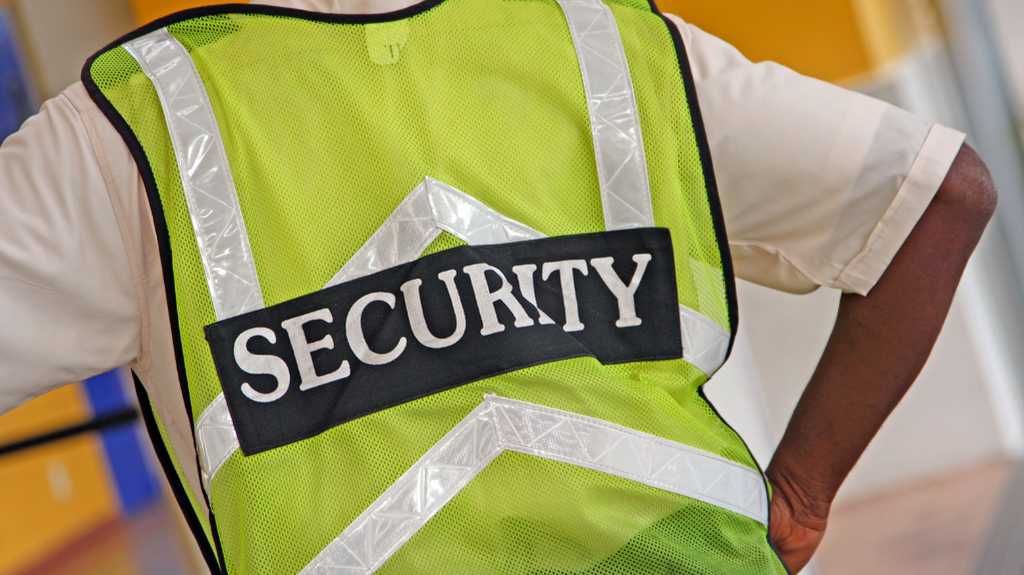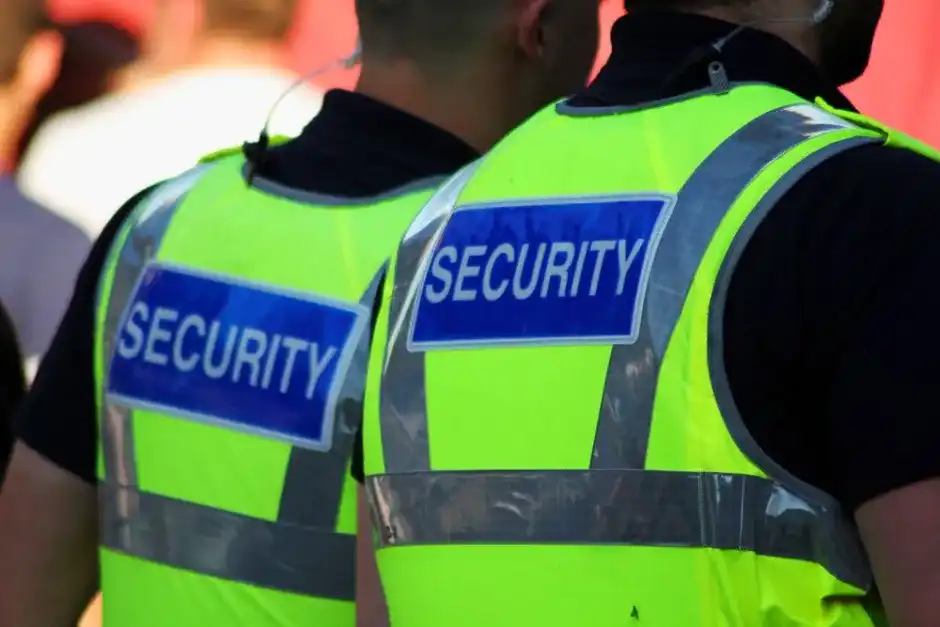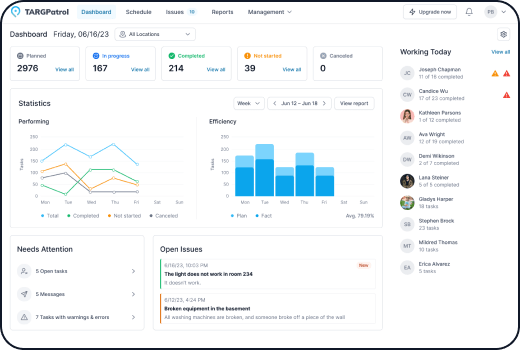Security services are one of the most stable industries worldwide. The demand for security services has always shown steady growth with very rare dips and is projected to show this sustained growth over the next decade as well. Organizations, businesses, and residential buildings need security from intruders, thefts, and other threats.
In the last couple of decades, security teams have shifted largely to mobile patrols instead of deploying guards at stationary posts. These patrols have several advantages over static guard posts but they also take a bit more planning. In this article, we explore the importance of security patrols and how organizations can conduct them effectively.
What are the organizations or industries that need security patrols?

Many organizations, industries, and businesses can benefit significantly from security patrols. Here are a few:
Banking
Banking and financial institutions constantly transfer and carry large amounts of currency making them a prime target for bad actors. Without security systems or teams, banking institutions will be vulnerable to theft and robbery. By placing security patrols over their premises, banks can mitigate this risk to a large extent.
Schools and educational institutions
Schools and educational institutions may face threats to their safety and security from bad actors planning to target their students. Vandals may damage the institutions’ property or even steal them. Security patrols can monitor the premises and take immediate action if they spot any threat to the safety of students, faculty, or the infrastructure.
Retail stores
Retail stores constantly face the threat of shoplifters, vandals, and even robbers. They are also often very easy targets since the employees are rarely equipped to deal with them. When the stores are closed, thieves or vandals may target them and damage the property.
Just the mere presence of security guards can reduce this risk significantly.
Hotels, hostels, and dormitories
Hotels and dormitories may face threats of vandalism or even violence against their guests. Under the right circumstances, thieves may find them vulnerable targets as well. If the hotels or hostels are within large premises, they may attract bad actors who may remain undetected until they cause harm. Security guards can deter them on time and keep occupants safe and secure.
Healthcare institutions
Healthcare institutions often face a variety of threats that security patrols can prevent. Healthcare institutions like hospitals may house aggressive patients who pose a threat to the staff and other patients. They also often have valuable equipment and devices as well as drugs and medicines. Without proper security, these institutions may face violence, theft, and other threats.
Museums
Museums often house highly valuable and irreplaceable items. While theft or a robbery may be rare events, they can cost significant losses to museums. They also face the threat of vandals who may deface or damage the artifacts. Museums need regular patrols and guards to ensure that the artifacts as well as the staff will be safe and secure.
Shopping malls
Shopping malls are open environments with little access control. A large number of unidentified guests will enter and leave the premises regularly which can present a threat to the security and safety of the stores and others. Shopping malls may also be a host to a variety of businesses each of which can have different security risks.
Regular patrols and walkarounds from security teams can mitigate this risk to a large extent.
What are the benefits of conducting security patrols?
Keep property and occupants safe
The primary purpose of conducting security patrols is to keep the property and occupants safe. If there are any intruders or bad actors that can affect the safety of occupants, security guards can thwart them and make the premises safer.
Without security guards, properties or occupants will be without any defense. Civilians are rarely trained to defend themselves, and even if they’re, they’ll be unaware of the threats they face and won’t be prepared.
Well-trained security guards can prevent damage to the property and keep occupants away from harm.
Reduce security costs
Covering large premises with stationary outposts will need a large number of guards. This can exponentially increase the associated costs. The other option is to cut down on the number of guards over the premises, but this puts certain areas of the compound highly vulnerable.
With mobile patrols, a smaller number of guards can make themselves available across the property. This can decrease security costs significantly without compromising security.
Make better use of security technology
There are many technological solutions that can improve the safety and security of buildings. They include burglar alarms, CCTV systems, intruder detection systems, and others. But while these systems can detect problems and may even identify intruders after the event, they can do little to prevent them. Even if residents were alerted, they’ll have to call up law enforcement to protect themselves. And even if the alarms alert law enforcement, they may still be late.
But by combining security technology with mobile patrols, they can mitigate the security risks further.
Get a better understanding of security threats
Many organizations or occupants of residential buildings are unaware of the security threats they face. They may implement CCTV surveillance or intruder alert systems, but these systems may not be enough. Without a clear evaluation of the risks they face, these systems can do little to keep the occupants or their property safe.
Mobile security teams are trained to evaluate the risks, identify the threats, and mitigate them effectively. Regular patrols will also give the organization a better picture of what they’re facing and let them tweak its security strategy accordingly.
Deters crime
One of the rules of security is that the difficulty of getting past security must be higher than what someone can get by doing so. For instance, if you’re guarding a $2mn diamond necklace, the thieves should have to invest more than that to get past the security. Or rather the costs should outweigh the benefits from a bad actor’s perspective.
The mere presence of security guards will tell potential intruders or bad actors that they’ll have to pay a higher cost or face more risks which will deter them. The presence of security guards is a message to bad actors that whatever they’re planning to do is not worth it.
Improve the value of the property and attract higher-paying tenants
If a building or a property is up for lease or is awaiting tenants, it will attract higher-paying clients as long as the security patrol is part of the package. It will make the property more attractive, particularly for people who need it. Building owners can get higher returns from their property.
How can you make your security patrols more effective?
Here are some of the best practices that can make your security patrols more effective.
1. Communicate frequently
When security teams are out on patrol, ensure that they are in constant communication with each other. Everyone on the team should have a clear picture of where the rest of the guards are at.
If the guards notice any suspicious activity, they should update the rest of the team before they proceed to inspect it further. Even if there is no suspicious activity, the guards should check in regularly with each other; this way the rest of the team will be aware if any of them are incapacitated.
Without frequent communication, the entire team will be isolated from each other, and intruders or assailants may be able to get past them.

2. Evaluate the risks and decide on a patrol strategy
Before starting patrol, the security team should evaluate the premises and the scope of their services and build a good strategy that mitigates the risks. The team should evaluate the number of personnel to cover the area efficiently, whether they should be armed or unarmed and the tools and equipment they’ll need.
The security team should also evaluate the risks facing the assets and the people they’re guarding and include that into their security strategy. They should also identify the specific threats and vulnerabilities they’ll have to guard against and decide how often they should cover the different areas. They’ll also have to consider the technologies they’ll need to guard the premises effectively.
3. Conduct patrols at random intervals
Regular patrols are easy for potential intruders to evade. If the patrols follow a specific frequency or regular routes, intruders can avoid them.
To conduct effective patrols, guards should follow random timings and routes. With a robust security assessment, the teams should decide the maximum time they can leave an area unguarded and adjust their routes accordingly. Even if the patrols are random, it should not mean some areas are covered all the time while other areas have little or no presence of guards.
Random patterns will be difficult for potential bad actors to evade. They’ll have to face a higher threat of detection if they make a move.
4. Track the security guards
Security guards should keep track of each other’s locations and document them. Tracking their location will ensure that they’re covering all the areas comprehensively and that they don’t miss their schedules.
Security teams can use GPS devices to track themselves if they’re patrolling outdoors. If they’re indoors, NFC or RFID tags may be a better alternative. Teams can place NFC tags all over the area they’re guarding and by providing guards with NFC readers, the team can pinpoint their location easily. Teams can use apps like TargPatrol to automate this process and document them in detail.
Tracking the guards will also help locate them quickly in case they’re incapacitated.
5. Make sure the guards are visible
The visible presence of guards can deter miscreants to a large extent. If the guards are seen patrolling the premises regularly, bad actors would think twice before making a move. For this guards must be clearly visible; they should have uniforms that clearly identify who they are and if they are armed, showing them may serve as a deterrent.
Of course, the visibility may also make them less effective depending on the specific situation. In some events, visible guards may be targeted if the assets are of high value.
While making the guards visible, the organization should also offer clarity to the security teams as well. They should have enough information to build a solid security strategy and they should have clear visibility into the premises they’re guarding.
6. Provide them with the right gear
To provide effective security, the team should have the right gear. If needed, they should be armed with proper weaponry and protective gear. Their uniforms should be comfortable and not distracting or restricting their movement.
If the guards are patrolling at night, they should be provided with flashlights or other forms of illumination. They should also have communication devices to keep in touch with their team. If necessary, guards should also have panic buttons that can alert the rest of the team if they’re in distress.
If the team is covering large areas, they should have vehicles to cover the premises quickly.
7. Train the guards
When choosing the teams, the organization should ensure that they have the right qualification and the training that the situation demands. If they’re armed, the team should be trained to safely and properly operate them.
Besides the general security training, the team should also be aware of the specific risks that their organization or the building faces and should be trained to defend against them.
The guards must also undergo regular retraining and the team should conduct regular physical fitness tests as well.
8. Have clear protocols for different events
The guards should know exactly what to do in different scenarios. For instance, if a guard hasn’t checked in in a while, or if they spot an intruder, the team should know exactly what to do. They shouldn’t panic if they face any threats and work as a team to defend the assets and property.
These protocols must be designed with careful planning beforehand and should mitigate the risks they face.
9. Use checklists and create detailed documentation
The security patrol must use detailed checklists for all aspects of their operation, from planning the patrol to debriefing after it. This will ensure that the team follows strict standards throughout the patrol and that they cover all the areas regularly. Detailed documentation will also help audit the security team and improve their effectiveness and efficiency with the team.
Conduct better security patrols with TargPatrol
TARGPatrol is designed to help organizations conduct seamless security patrols. The app can help organizations schedule their patrols and set tasks for their guards. It can also keep track of guards during their patrol and make sure they cover all the areas thoroughly.
Check out TARGPatrol and make your security patrols more effective.


